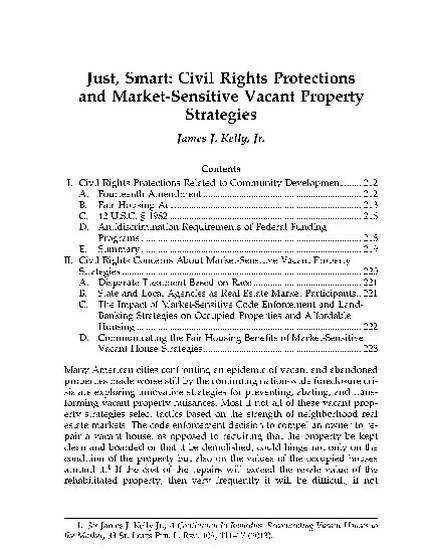
This essay, prepared for and published by the Center for Community Progress, a national, non-profit intermediary dedicated to developing effective, sustainable solutions to turn vacant, abandoned and problem properties into vibrant places, examines the legal and normative implications of local governments' use of neighborhood real estate market data to strategically focus vacant property remediation tools. I and other writers, such as Frank Alexander, Alan Mallach and Joseph Schilling, have argued for the importance of understanding the economic feasibility of market-based rehabilitation of derelict, vacant houses in making decisions as to how and when to use a variety of code enforcement, tax foreclosure and land banking mechanisms.
Part I of this essay explains how treating vacant properties in similar states of disrepair differently because of the condition of the properties around them appears to constitute, at least in the short term, vigilant support for healthy neighborhoods and acquiescence to continuing decline in more distressed areas. Because the distressed areas in many of the cities dealing with long-term vacant property problems are far more likely to have high percentages of African-American residents, the first part examines the scope and evidentiary standards of the relevant civil rights law, including the Fourteenth Amendment's Equal Protection Clause, 42 U.S.C. §1982 and the Fair Housing Act.
Part II concludes by outlining recommendations for local jurisdictions looking to create a substantively just and legally compliant approach to vacant property remediation that takes advantage of market-sensitive strategies.
Available at: http://works.bepress.com/james_kelly1/18/
